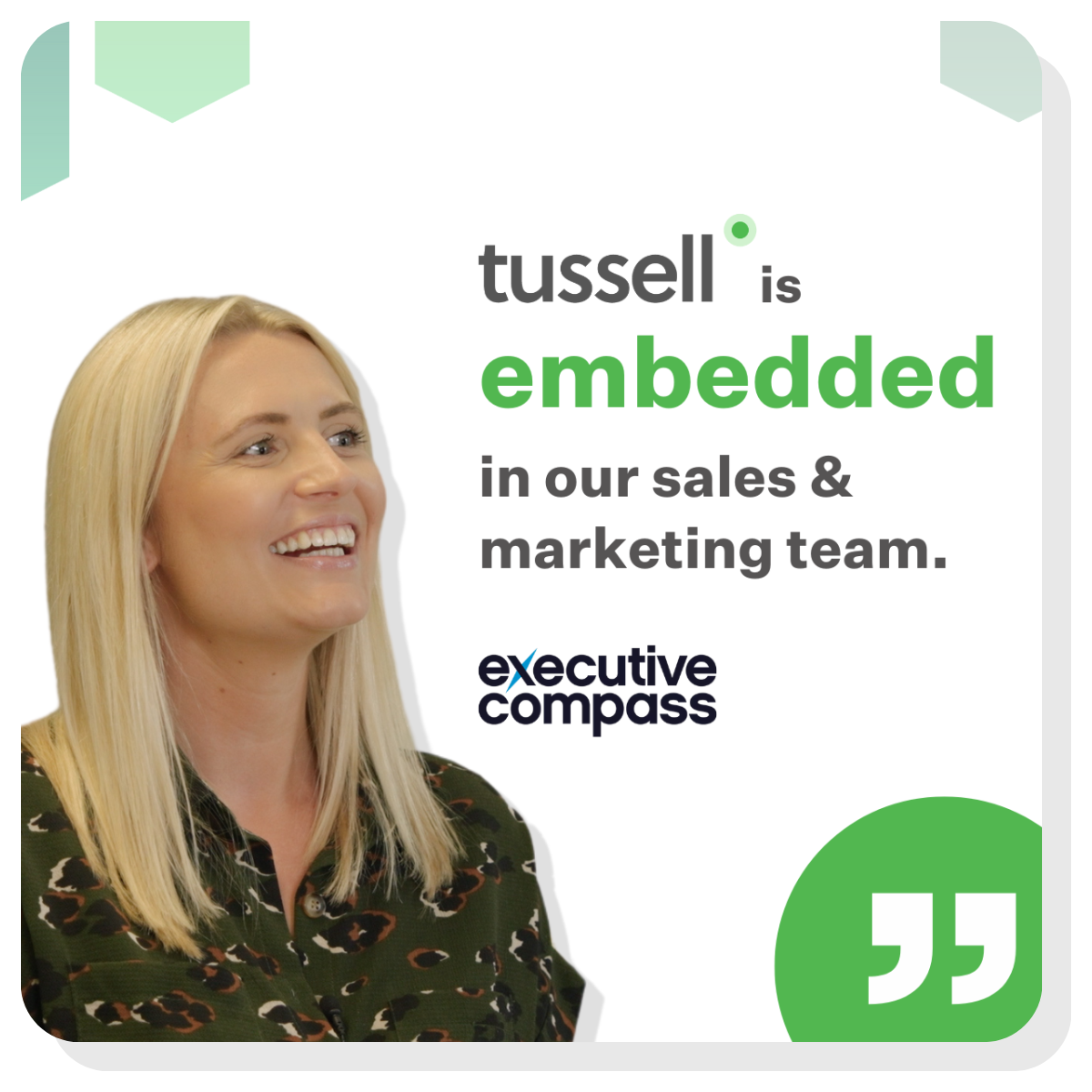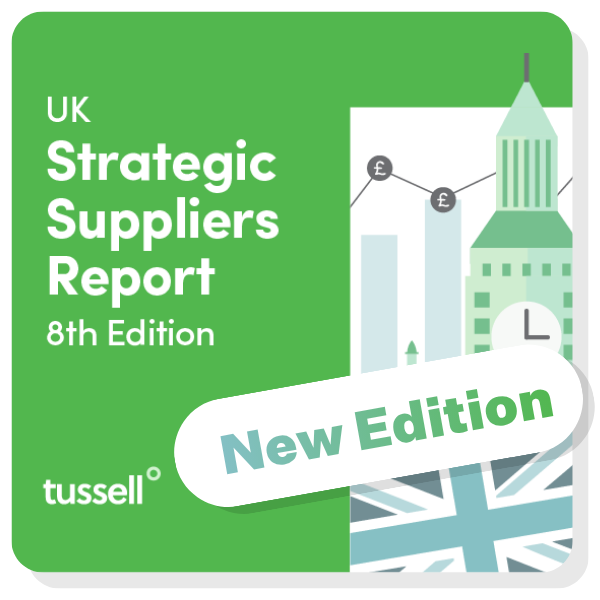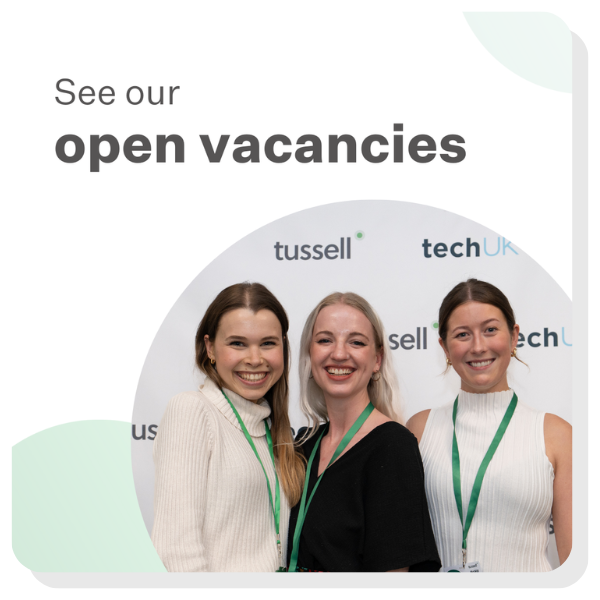Contents:
- Introduction
- The AI Procurement Tracker
- What is the data telling us?
- What is the methodology?
- AI Tracker - in the media
Last updated: 29th January 2026
NB: On November 4th, Sky News' Sam Coates used data from this Tracker to report on the government's £3.3bn worth of awarded AI contracts. Watch his full explainer here.
Introduction
Artificial Intelligence (AI) is capturing the world’s imagination, and that includes the UK public sector.
Public bodies have been purchasing AI-based solutions for well over a decade, but recent breakthroughs - specifically in Generative AI since the launch of ChatGPT in late 2022 - have spurred a fresh wave of interest in how government could benefit from this rapidly-evolving technology.
Whilst loud voices debate the future of AI, we at Tussell wanted to cut through the noise and look at the facts.
We’ve set out to answer a simple question: How much has the government spent on procuring AI so far, and what is it buying?
Introducing: Tussell's AI Procurement Tracker.
Inspired by an earlier tracker we produced to measure Covid-related procurement contracts, this new Tracker draws on data from our own market intelligence platform to map the landscape of AI adoption across government.
Our AI Procurement Tracker is your go-to source of fact-checked data to understand which AI capabilities the government is buying, who from and at what cost.
This will be essential reading if:
-
Your company supplies tech to government and you want to follow the latest market trends, or
-
You work in a public body and want to know how your peers are
adapting to rapid change, or -
You are a journalist, commentator or policy advisor in search of
hard facts to back up your research.
The AI Procurement Tracker
Between 01/01/2018 and the 13/01/2026:
The UK public sector awarded
1,690 AI contracts
In total, they were worth
£4 billion
January 2026 Update: key takeaways
With 2025's full-year data now in, we can officially say that 2025 was the biggest year ever for government AI procurement - and by a long shot.
By volume, 55% more AI contracts were awarded in 2025 vs. 2024.
The total value of AI-related contract awards reached £1.17 billion, surpassing 2021's figure (which was largely a result of a single £1 billion Microsoft contract), and represents a 102% jump on the year prior.
One year on from the government's AI Opportunities Action Plan, this is a clear sign that the AI momentum is translating into on-the-ground procurement activity.
If this trajectory continues into this year, 2026 could far exceed 2025's procurement activity. By way of example: in just the first couple of weeks of January 2026, £34 million worth of AI contracts were awarded, representing half the value awarded in the entirety of 2018.
Is your business struggling to keep on top of the surge in new public sector AI opportunities? Get in touch with the team to see how we can help.
*
Chart 1: Value and volume of awarded contracts, since 2018
This chart shows that both the number and value of AI contracts have grown significantly since 2018, with more contracts awarded in 2025 than in any prior year.
The spike in contract value in 2021 was caused a £1 billion 'Supercomputing 2020+' contract, awarded by the Met Office to Microsoft.
👉 To download a sample of the underlying data, click here.
Chart 2: Largest buyers of AI by contract value, since 2018

Chart 3: Largest suppliers of AI by contract value, since 2018

Chart 4: Breakdown of AI-related contract value by theme
The UK public sector is harnessing AI to pursue a wide range of objectives - and this diversity is reflected in the variety of contracts being awarded.
To better understand where government procurement is focused, we asked ChatGPT to categorise these contracts using taxonomies derived from the three strategic pillars of the AI Opportunities Action Plan.
Please note this AI categorisation is still a work-in-progress, and results may change as we improve the model.
Here are the results:
Below, we've spotlighted some key contracts from these categories to illustrate what each means.
-
Compute & Infrastructure - focuses on providing the physical and digital backbone for AI - from high-performance computing and cloud platforms to sovereign infrastructure that ensures secure, scalable access to compute resources (e.g. the Met Office's £1bn Supercomputing contract)
-
Adoption & Deployment - contracts which promote the piloting and scaling of AI projects, and encouraging uptake across society (e.g. National Highway's £35mn contract with Deloitte to introduce a 'Digital Lab' in their Chief Data Office)
-
Innovation & Frontier AI - supports cutting-edge AI research and the development (e.g. IBM's £13.5mn contract to deliver 'GenAI Lighthouse Projects' within the DWP)
-
Data Management & Enablement - covers unlocking, standardising and sharing high-value datasets so that AI models can be developed and deployed responsibly (e.g. NHS England's £182mn contract with Palantir to provide a 'Federated Data Platform')
-
Governance, Management & Regulation - contracts that promote the safe and ethical use of AI in society (e.g. Anmut Consulting's £25mn contract with National Highways to develop their Chief Data Office's 'Data Governance & Assurance' division, including their AI Governance Strategy)
-
Skills & Workforce - up-skilling staff to ensure they can properly harness the potential of AI in their work (e.g. Kainos' £7.4mn contract with the MOD to provide staff "the capacity and skills required to deliver AI and AS concepts sustainably and at scale")
-
Market Confidence & Public Trust - contracts that promote transparency, ethics and public engagement around AI.
Chart 5: Top 5 AI frameworks (by value of call-off contracts)

Many of the identified AI contracts were awarded via a framework agreement or Dynamic Purchasing System.
These preferred-supplier agreements enable contracting authorities to expedite their procurement, by publishing and awarding tenders to a closed group of pre-vetted suppliers.
Tussell's framework intelligence shows that just over a third of the contracts awarded since Jan 2018 were called-off via a framework agreement.
The wider public sector, by comparison, awards roughly 1 in every 4 contracts via a framework, meaning buyers seem to be harnessing frameworks more frequently when purchasing AI-related services.
👉 Want to dig into the data for yourself? Download a sample here.
What is the data telling us?
AI procurement is accelerating. 2025 was the biggest ever year for AI government contracts by a wide margin.
But, the scale of AI procurement should not be over-emphasised (yet).
£4 billion sounds like a lot, but remember: just under a quarter of this stems from a single £1 billion contract in 2021.
But even when taken at face value, £4 billion still only accounts for roughly 3.2% of the total value of all IT Services and Software contracts awarded by the public sector over the Jan 2018 - Jan 2026 period (£123bn)
The rate of increase in the volume and value of AI-related contracts each year will likely mean this proportion will grow over the coming decade - but, for the time being, AI-related procurement remains a small sub-section of government tech spending.

What's the methodology?
The AI Tracker draws on open public procurement data, aggregated by Tussell’s market intelligence platform.
We have filtered all awarded contracts in the period January 2018 to January 2026 for only those containing keywords in their title or description that are capabilities, products or companies.
For the categorisation of the AI contracts we've used ChatGPT with human oversight.
AI Tracker - in the media
We're proud that the national media has utilised Tussell's AI Procurement Tracker to report on the state of AI procurement in the UK public sector. Examples include:
-
Sky News, Revealed: How much the government's spending on AI, Nov 2025
-
ComputerWeekly, Can UK government achieve ambition to become AI powerhouse?, Jan 2025
-
UKAuthority, Predictive analytics accounts for most of public sector's AI spending, Jan 2025
-
The Guardian, UK government to list use of AI on mandatory register, Nov 2024
-
Diginomica, AI in Healthcare - how to support a workforce of health experts but tech novices?, Nov 2024
*
Measuring what is and isn’t AI is highly subjective.
We stand by our prudently narrow definition based on explicitly AI-related keywords, but we will continue to iterate on our exact definition as time goes on.
If you have any questions or comments about how the AI Procurement Tracker was compiled, email us at contact@tussell.com
FAQs
Who is Tussell?
Tussell is the market's trusted source of insight on UK government contracts & spending. Our premium market intelligence platform is designed for, and used by, top suppliers to government to underpin their public sector business development.
How do I find government AI opportunities and contracts?
You can use open source portals, like Find a Tender, to be alerted to newly published AI-related tenders - but functionality is limited, and you risk missing opportunities found across other lesser-known portals. Platforms like Tussell aggregate all public sector opportunities together into a single place, streamlining your process and giving you the confidence you're not missing out on opportunities.
Who is winning government AI contracts, and who is awarding them?
You can use open source portals, like Find a Tender, to run analysis on who is winning and awarding government AI contracts - but this would be a massively time-intensive process, and be reliant on an inherently fragmented and incomplete database. Platforms like Tussell collect and enhance all available data on live and historic government contracts, enabling you to see in just a couple of clicks who is awarding and winning AI contracts, inc. their value, duration and details.




%20v1.png)



.png?width=80&height=80&name=james%20v2%20(1).png)







